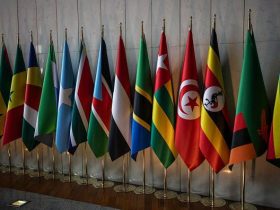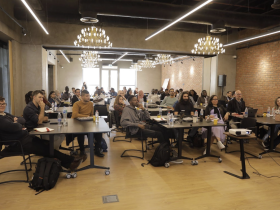Despite their ostensibly noble intentions, licensing laws protect incumbent firms by preventing new, small businesses from entering the industry and competing. This is in addition to creating new avenues for corruption, and criminalising ordinary economic activities. South Africa’s licensing regime must be significantly scaled back.
This is according to the authors of Laws Affecting Small Business: Licensing, which is part of a series of research booklets published by the Free Market Foundation. The LASB booklets cover eight areas of government legislation and regulation that harms and hinders the establishment and growth of small enterprises in South Africa.
Licensing law – whether these items are called permits, approval, certificates, or licences – has the inherent consequence of criminalisation. One can, for instance, freely take friends, family, and strangers on tours around one’s hometown, but the moment one wishes to sell that service – as a “tour guide” – an arbitrary government permission slip becomes necessary, in the absence of which one might find oneself fined or even jailed.
It is clear how this kind of approach to economic activity – in the midst of other unattractive economic policies, like South Africa’s labour regime – could discourage potential new entrants from getting their businesses off the ground.
While licensing law is a problem worldwide, in South Africa the added burden of having to supply the officials vested with the discretion to approve or deny licences “in the public interest” with bribes only contributes to this hesitation.
The practical steps the LASB: Licensing authors recommend, include, as a first prize, the repeal of most, if not all, existing licensing laws.
Short of that, licence applications should be replaced with automatic licensing, and no new licensing laws should be introduced unless it is strictly necessary for a legitimate government purpose. Licensing laws that benefit incumbents with de facto monopolies or that discourage competition must be done away with.
That health spa operators, sauna owners, speech therapists, tour guides, boxing trainers, masseurs, and postmen, among hundreds of other occupations, require licences to do their work, is clearly nothing more than a government gatekeeping scheme for incumbents.
Furthermore, informal street traders must not have their goods seized simply because they fail to produce a licence card, and any bylaws that permit such seizure must also provide for returning the property. More than that, hawkers should, at most, only be required to have a licence if they seek to sell foodstuffs.
The authors correctly note that whilst licensing laws are justified in the discourse as being introduced to protect consumers, the practical effect is the opposite. In reality, consumers benefit most from having the greatest possible choice between suppliers of goods and services, and being trusted to decide for themselves which supplier would serve their interests best. No government official has the competence to make this decision on their behalf.
Licensing laws offer the public a false comfort. Despite lawyers being required to obtain a four-year degree, and spend between one and three years obtaining a “licence” to practice, we read about lawyers being disbarred every other week for malpractice. The “licence,” if anything, simply made the malpracticing lawyer’s services even more expensive to the clients they defrauded.
The public must understand that they need to use their own judgment – and the very useful collective judgment through online rating apps that have become the norm in recent years, for instance – to protect themselves. A government requirement for a permit is often worth less than the paper it is printed on.
But one must also not make the mistake of thinking that simply because a licence is required by law for something, that it is in fact necessary. Many American states and cities, for example, require barbers and hairdressers to have licences to conduct their chosen trades. In South Africa, at least since 1991, barbers and hairdressers have not required occupational licences. What this reveals is that, while one might think the licence requirement protects consumers, in reality it only adds costs to the entrepreneur and ultimately the consumer, with little to no benefit.
Licensing laws are particularly pernicious for entrepreneurs starting with very little, or those from a disadvantaged background. Wealthier entrepreneurs, or those with access to lawyers and consultants, have a far easier time adhering to these burdensome laws. For others, the result is often that they either abandon their entrepreneurial pursuits, or they take the risk of failing to comply with the relevant licensing prescriptions.
South Africa’s economy is in one of its most precarious ever states. It must be government’s agenda to remove as many of the stumbling blocks to economic activity and growth as possible. Entrepreneurs must be popping up left and right to create jobs and offer affordable goods and services, without having to comply with State edicts that necessarily make those goods and services more expensive.
The LASB booklets represent one-third of the Free Market Foundation’s book, Radical Economic Transformation: The Legal Route to Economic Freedom, which proposes a comprehensive reform package that will get the South African economy prospering. Liberalisation, not only of the licensing law regime but of the entire economy, is an imperative.
























Leave a Reply